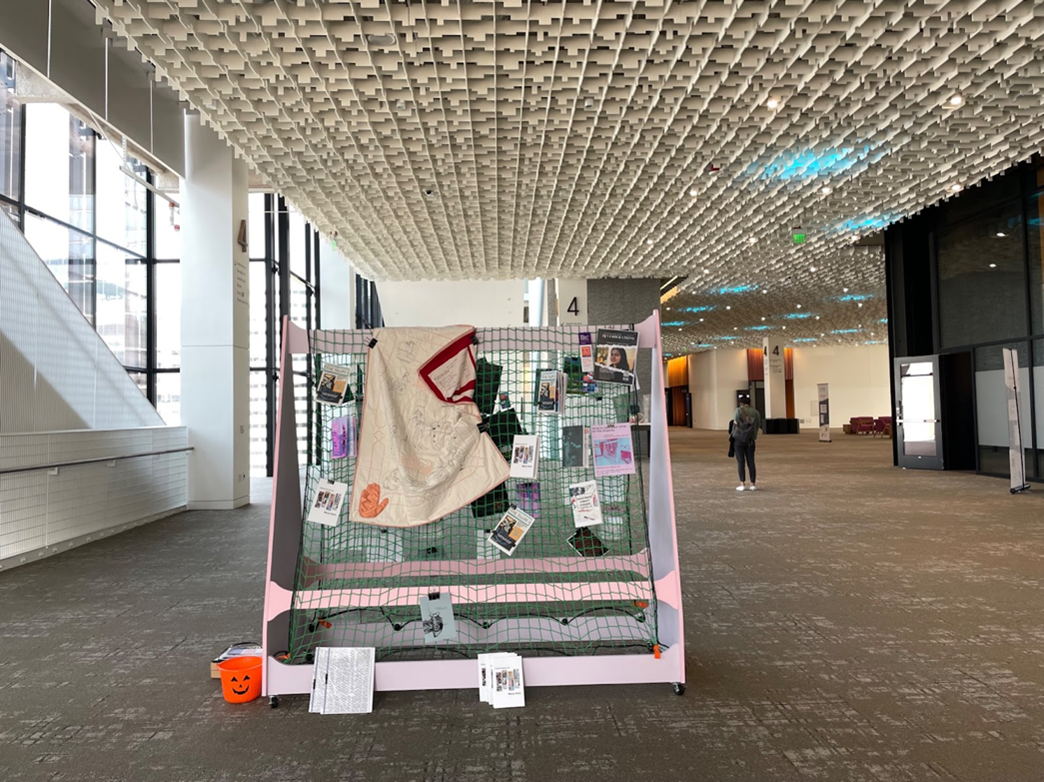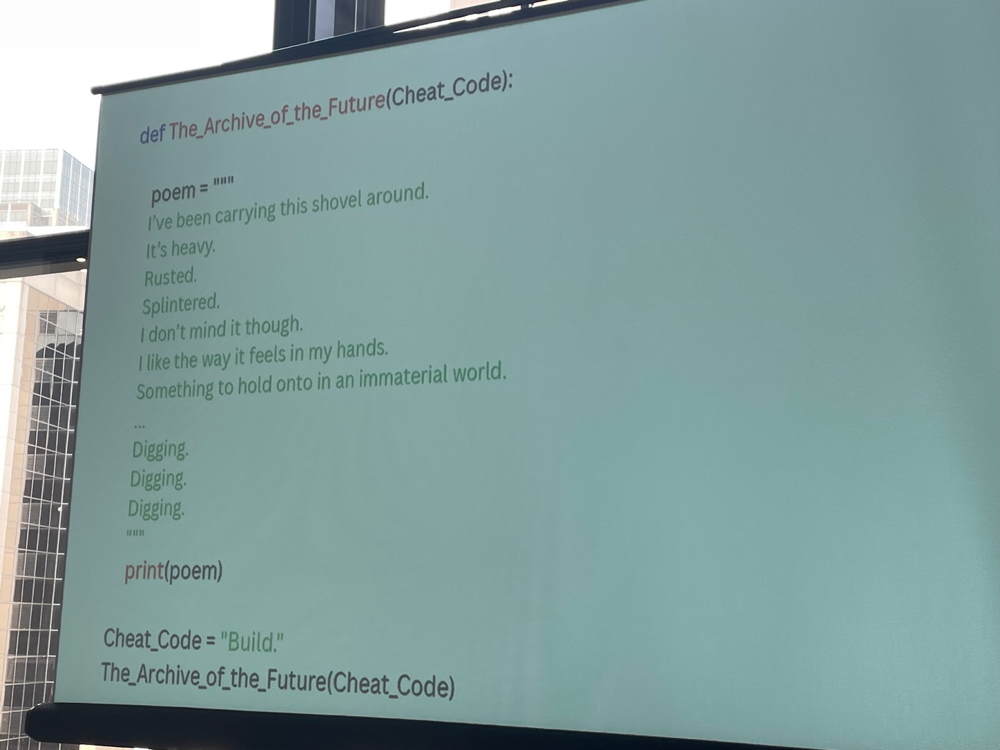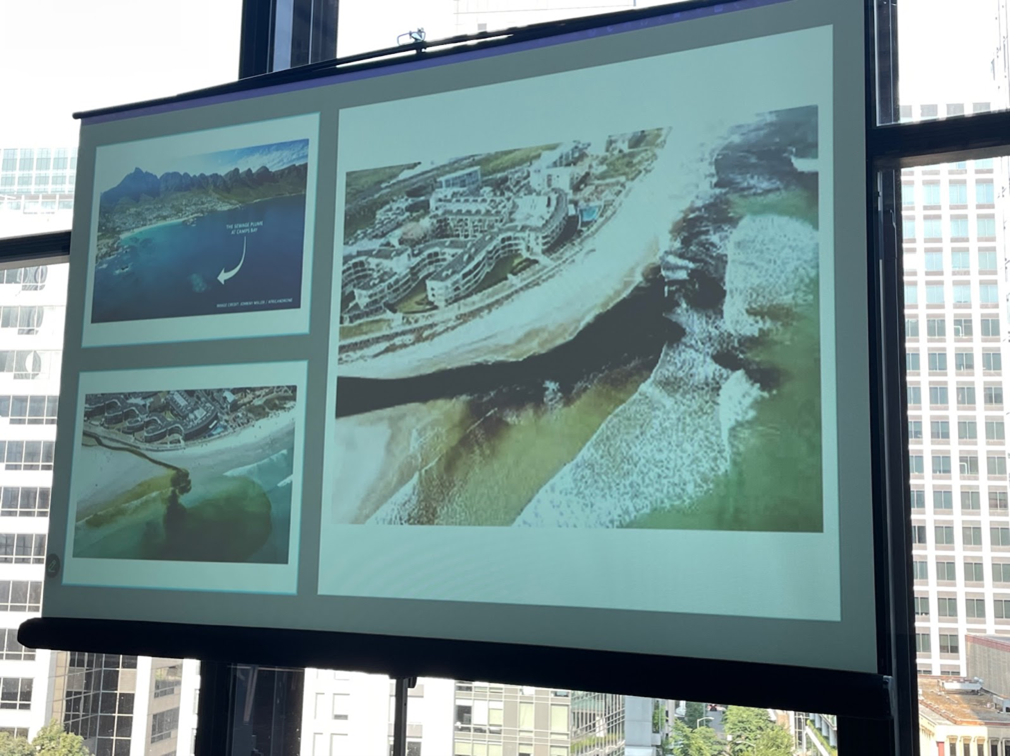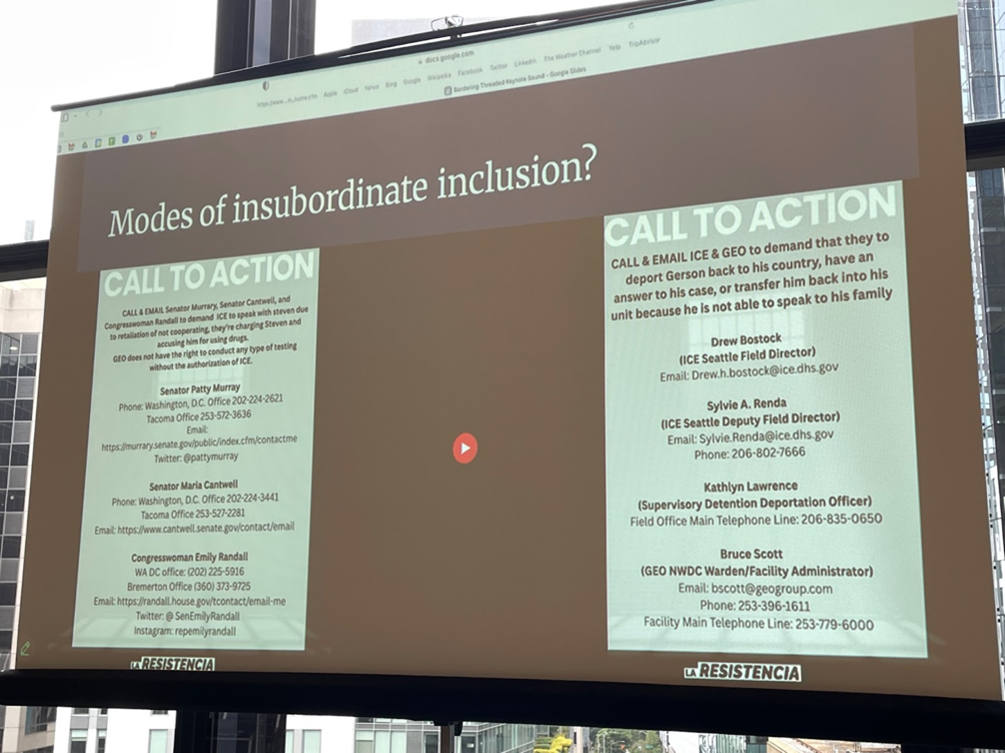
Reflections
Zine Fest
Gabrielle Benabdallah (University of Washington) and Anne Pasek (Trent University) organized the inaugural Zine Festival, which celebrated creative, political, and analytic explorations in STS beyond traditional academic formats. Benabdallah lead a special event on 4 September, Zines Out Loud, in which creators spoke about the ideas, processes, and stories behind their zine projects.

Zines have long been a way to share knowledge, build skills, and build community across unpredictable distribution networks and outside of digital search and content recommendation algorithyms. Scholars are also increasingly using zines as a way to get around the stylistic and paywall restrictions of traditional journals and books, and to reach new audiences for their work. In these slim pages, authors can both speak in a wider range of voices and perform their arguments in more than linguistic ways. While anyone was welcome to bring a zine to 4S Seattle, we have here collected the submissions from the conference's refereed track. We are delighted by their diverse approaches to science and technology studies, the possibilities of print, and new ways of thinking and feeling through one’s research. View the submitted zines as a PDF here.
Threaded keynote panels
Daniela Rosner and Jenna Grant (both at the University of Washington) organized three threaded keynote panels: Art Scenes (4 September); Political Water (5 September); and Bordering (6 September). The panels brought together scholar-practitioners at different career stages to think together about problems and methods. Prior to the conference, panelists shared a “key note”—a short written or audiovisual work about a term, concept, or problem that is central to their thinking about the panel’s topic. At the conference, panelists responded to one another and shared their own key note.
Art scenes

The panel spoke about about experimentation as a demand of materials (Tania Pérez-Bustos); spaces for existing and not always becoming (Sadaf Sadri); data that get stored in DNA rather than data centers (Althea Rao); and holding history in the body and not just Google (Chari Glogovac-Smith), ultimately asking how to be a better ancestor?
Political water

The speakers discussed the possibilities of looking down rather than upward toward oligarchs and higher powers (Andrea Ballestero); the importance of critical zones and their inheritances (Nikiwe Solomon); and the terrains of obligation that emerge when analysts disrespect water’s ontological terms (Jakkrit Sanghamanee).
Bordering

The conversation unfolded vis-à-vis distinct moments of bordering in/exclusions: sonic disruptions to the ocular-centric nature of border surveillance (Diana Ruíz); moments of prescience in Margaret Mead’s writing on computers (Lupe Flores); and inclusions in indefinite confinement through a system of digital and flexible apartheid only visible to those on the other side (Darren Byler).
Presidential Plenary
This year’s 4S Presidential Plenary offered a novel format, with Dian Million (Tanana Athabascan), author of Therapeutic Nations: Healing in the Age of Indigenous Human Rights (2013) and Candis Callison (Taltan), author of How Climate Change Comes to Matter: The Communal Life of Facts (2014) in an interview-style dialogue addressing the question, “What can STS learn from Indigenous Studies?” Their conversation underscored the vitality of place and relational responsibilities, and the urgency of challenging a wide range of technologies of capitalism causing harm. Linking the salience of affect theory to imperatives of justice, Million addressed the ways that techniques such as residential schools in Canada and the USA – along with other institutional forms of colonial violence – led to a literal denial of voice for Native peoples, creating an absence of “any narrative to account for the actuality of their inner experience.” In response, Million continued, Indigenous voices became a kind of “social technology,” countering the presumed rationalism of scientific discourse, opening new affective and emotive pathways and emergent modes of “governance through affect.” This kind of framework is, as Callison put it, “rooted in community experiences ⦠and this is the real gift that Indigenous Studies has given us: you have scholars from different communities working together to theorize and analyze in a way that makes sense for other Indigenous communities and scholars, and others.” Closing with a caution to remember that racialization and many forms of hierarchies have been “produced by science and protected by science,” Million urged deeper dialogue between STS and Indigenous Studies – especially critical tracings of the "techniques" of dominance that persist. Moving beyond a typical academic plenary, Callison and Million's lively conversation ignited intellectual-political possibilities for the two fields to re-enter dialogue, attendant to decolonial theories of experience, embodiment, and relationality.
